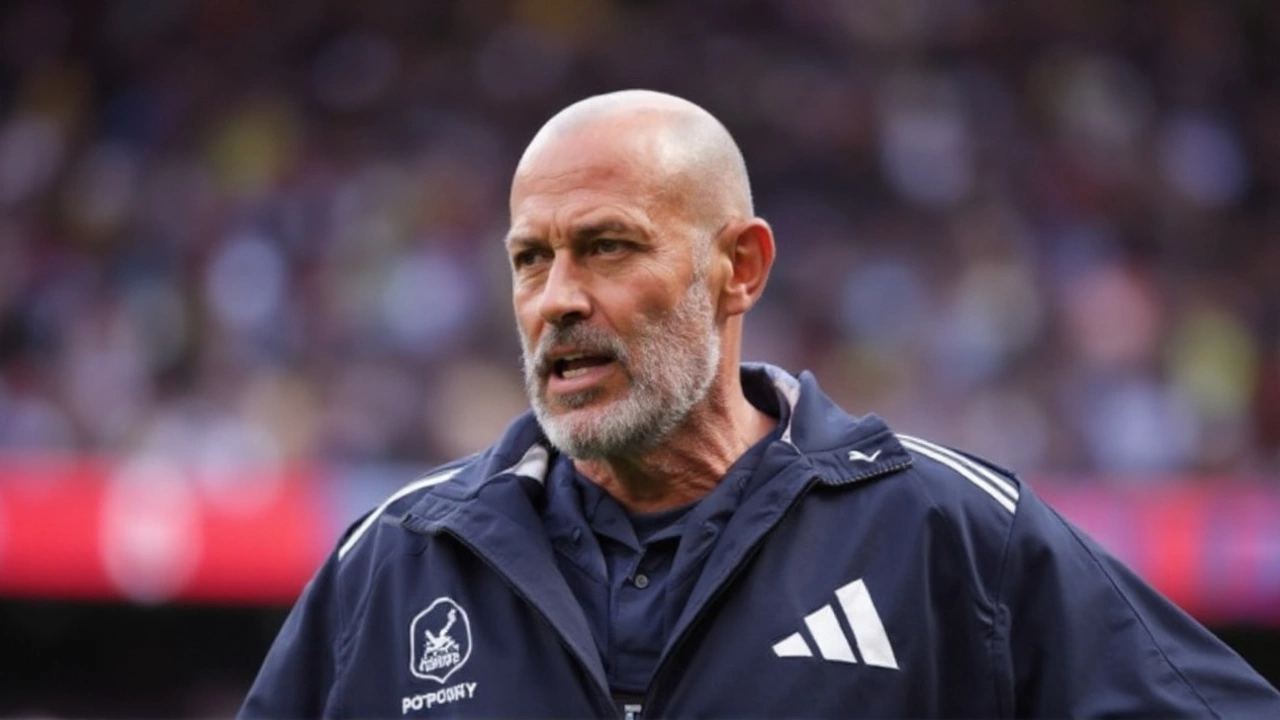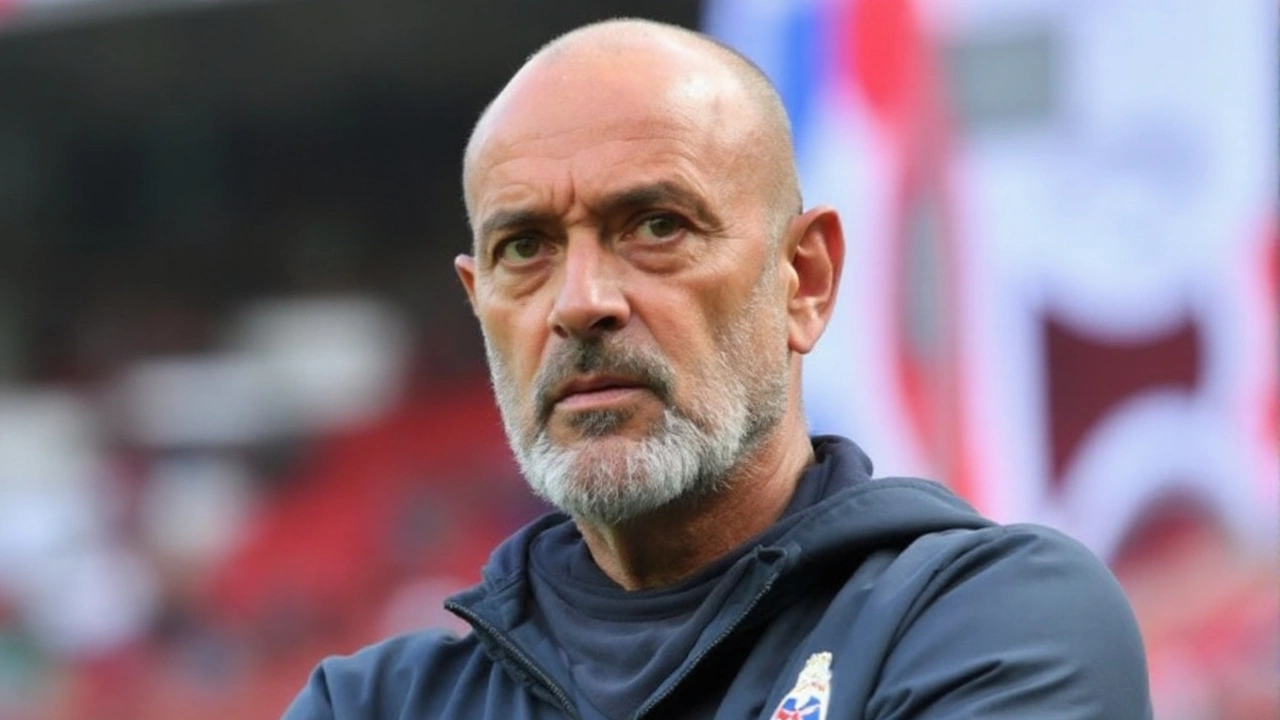Nuno Espirito Santo out at Forest after public clash with ownership
Nottingham Forest have dismissed Nuno Espirito Santo just three matches into the new Premier League season, ending a tense stand‑off with owner Evangelos Marinakis that spilled into the open over the past week. The club moved after Nuno publicly criticized the hierarchy twice in seven days, a move that left Marinakis described by insiders as furious and deeply hurt.
The rupture had been brewing. A summit between the pair was penciled in for the international break to clear the air, but it never happened. Instead, the silence hardened positions. By the time the squad returned to training, the relationship looked beyond repair. Forest have now opted for a clean break, prioritizing speed and stability in a season that has barely started.
It’s a brutal end to a tenure that promised structure but delivered strain. Nuno arrived with a reputation for discipline and defensive order, and he did steady Forest in difficult spells. But like many modern coach‑owner relationships, the tension over who controls signings, the messaging around the club’s direction, and how public that debate becomes proved decisive. Once the criticism went public—twice—the trust needed to ride out early‑season bumps disappeared.
The timing is stark. Sacking a head coach so early typically signals a deeper disconnect than results alone. Forest’s hierarchy concluded that the public shots at ownership made a reset unavoidable. Behind the scenes, directors spent the past week weighing the fallout, canvassing options, and preparing for a quick succession plan. The club’s statement is imminent.
For Nuno, this is a familiar paradox: a coach known for structure embroiled in turbulence he could not control. His earlier spell in English football at Wolves brought a clear identity and top‑half finishes, while his short time at Tottenham showed the limits of a cautious style under intense scrutiny. At Forest, the politics of a fast‑moving recruitment model and a forceful ownership presence were always going to test the boundaries of autonomy.
For Marinakis, who has never been shy about decisive changes at his clubs, the line was crossed when criticism left the training ground and hit the public square. Forest’s ownership wants unity of message as much as unity of purpose. Once that unity cracked in full view, the decision followed.

Postecoglou leads the race—and what each candidate would mean
Forest moved quickly to line up options. Ange Postecoglou is the bookmakers’ clear favorite at 1/2 to take over, and there’s momentum behind his name. Fresh off a Europa League win in 2025 and well known for front‑foot, high‑tempo football, he would instantly change the mood music: aggressive pressing, risk‑taking in possession, and a willingness to back youth if they suit the system.
Postecoglou’s appeal is obvious. His teams play with conviction, he communicates cleanly, and he tends to win over a fanbase fast. The trade‑off? His style demands specific player profiles—ball‑secure center‑backs, brave full‑backs who invert or overlap relentlessly, and midfielders comfortable under pressure. Forest’s squad has energy, but a midseason tactical overhaul is demanding. If he lands the job, expect quick calls on who fits and who doesn’t.
Jose Mourinho, priced around 5/2, offers a different proposition. Available after leaving Fenerbahce, he brings instant authority, media control, and short‑term clarity. With him, the message is simple: compact shape, ruthless moments, results first. He’s built for a rescue mission, but working under a strong owner adds its own edge. The upside is experience; the downside is whether that hard‑edged approach meshes with Forest’s longer‑term squad build.
Two active Premier League managers are also in the frame at longer odds. Marco Silva (Fulham) and Oliver Glasner (Crystal Palace), both around 8/1, are intriguing but complicated targets midseason. Silva’s sides are tidy and efficient with quick transitions. Glasner’s Palace have added structure and punch without sacrificing organization. Any move here would require club‑to‑club negotiation and a clear pitch about project control and recruitment influence.
Brendan Rodgers and Sean Dyche round out the list of names under consideration. Rodgers would bring possession control and pattern play, but he would want a strong say in the sporting plan. Dyche offers defensive simplicity and survival know‑how, though stylistically he sits furthest from what Forest’s recruitment has been geared toward in recent windows.
Here’s how the market looks, based on current odds being quoted around the industry:
- Ange Postecoglou — 1/2
- Jose Mourinho — 5/2
- Marco Silva — 8/1
- Oliver Glasner — 8/1
- Brendan Rodgers — longer odds
- Sean Dyche — longer odds
Forest are expected to move swiftly. Standard practice is to appoint an interim from within the staff while talks progress, especially with the league resuming right after the break. The board will want a clear voice on the training ground by the weekend, even if the permanent hire takes a few extra days to finalize.
Beyond names and odds, the real issue is fit. Forest need clarity on authority lines: who signs players, who sets the football vision, who explains it publicly. The recent flashpoint—two public criticisms in a week—was a symptom of that lack of alignment. Any incoming coach will push for guardrails: a defined recruitment role, agreed‑upon media messaging, and quicker decision‑making when windows are open.
There’s also the dressing room to consider. Players read headlines, and uncertainty drains energy. A coach who communicates simply—what the shape is, who starts, what the next week looks like—can calm a storm fast. That’s where Postecoglou’s straightforward demands or Mourinho’s decisive calls hold appeal. Both can impose order quickly, albeit in very different ways.
From the stands, the fanbase will split along familiar lines. Some will back the manager who spoke his mind; others will back the owner for acting early. What they all want is a team with an identity that doesn’t change every few months. That’s the challenge now: hire someone whose plan lasts beyond the next crisis.
Forest’s next steps are predictable but crucial. First, confirm Nuno’s exit and thank him for his work. Second, set out the criteria for the next coach—style, man‑management, collaboration with the recruitment team. Third, close the hire quickly enough to keep the season on track. A long search helps nobody in a league where two bad weeks can drag you into trouble.
Managers know the risks at Premier League clubs where owners are active and expectations are urgent. Speak out publicly and you’d better win the weekend. If you don’t, the room for error vanishes. Forest have made their call; now they need to make the next one count. The shortlist is full of big personalities and sharp ideas. The right choice will bring the squad into focus and calm the noise. The wrong one will make another early autumn drama feel inevitable.
